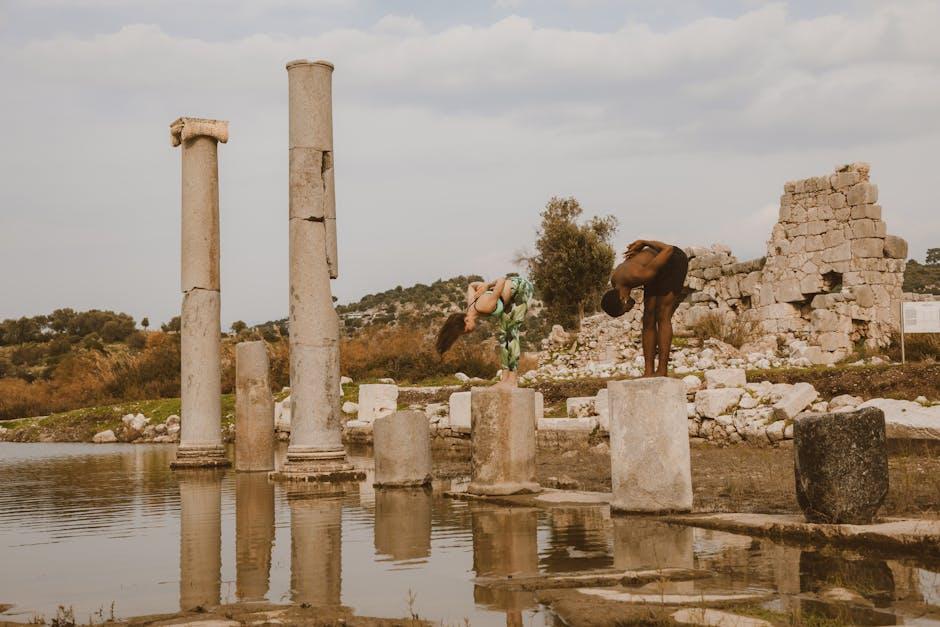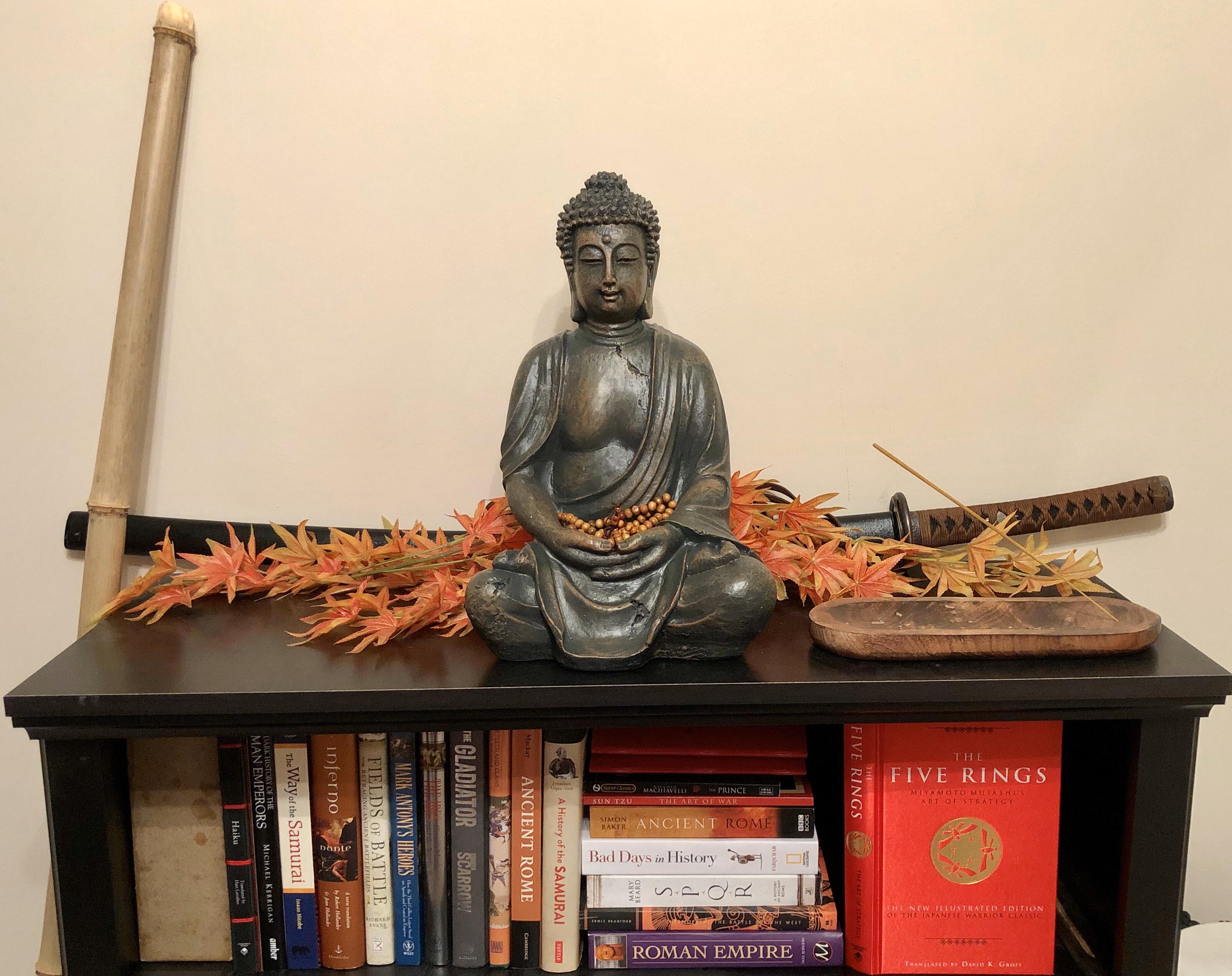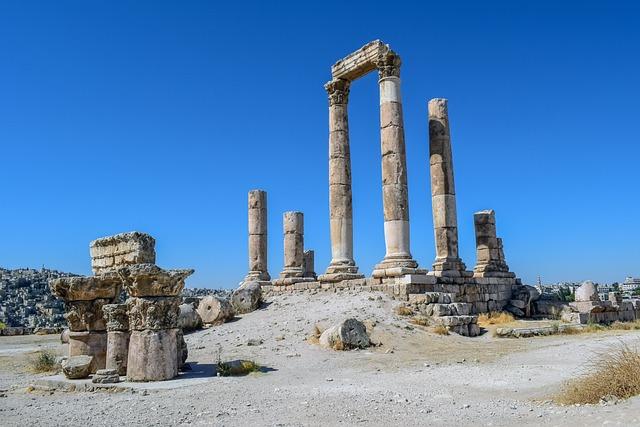In the bustling heart of the meditation-in-early-christianity/” title=”The Role of Meditation in Early Christianity”>Roman Empire, where the clatter of chariots echoed through cobblestone streets and the grandeur of marble monuments spoke of conquest and power, a quieter revolution was unfolding. Amidst the political intrigue and military might, a subtle art began to weave its way into the fabric of Roman life—meditation. This practice, often associated with distant Eastern philosophies, found an unexpected home in the empire, transcending cultural and geographical boundaries. As Roman citizens sought solace from the demands of imperial ambition, meditation emerged as a pathway to inner peace and self-discovery. This article delves into the , exploring how it permeated the lives of its people and influenced the spiritual landscape of an era defined by its pursuit of knowledge and enlightenment. Join us as we uncover the threads of mindfulness woven into the tapestry of Rome’s storied past, revealing a narrative as intricate and profound as the empire itself.
Roots of Serenity tracing Meditations Origins in Ancient Rome
In the heart of the Roman Empire, meditation found a subtle yet profound presence, interwoven with the rich tapestry of philosophical thought and spiritual practice. While often overshadowed by the grandeur of Roman conquests and political exploits, the practice of meditation quietly flourished among intellectuals and seekers of inner peace. The Romans, influenced by the diverse cultures within their vast empire, encountered meditation through Hellenistic philosophies and Eastern spiritual traditions. These encounters led to a unique Roman interpretation of meditation, which focused on cultivating the mind and achieving tranquility amidst the chaos of everyday life.
Roman meditation practices were notably influenced by the teachings of Stoicism, a philosophy that emphasized rational thought and inner calm. Stoic philosophers like Seneca and Marcus Aurelius advocated for meditative exercises to foster self-reflection and emotional resilience. Among the practices were:
- Reflective contemplation on one’s actions and emotions.
- Daily journaling, which served as a form of meditative introspection.
- Engaging in silent retreats to detach from worldly distractions.
These meditative practices were not just for the elite but permeated various layers of Roman society, offering a pathway to serenity and wisdom in an empire often characterized by its tumultuous nature.
Meditation in the Roman Empire a Journey through Philosophy and Practice
In the vast tapestry of the Roman Empire, meditation was not merely a practice of serene contemplation but a profound journey interwoven with the philosophical currents of the time. The Romans, deeply influenced by Greek thought, adopted and adapted various meditative practices to align with their own cultural and philosophical ideals. Stoicism, a dominant philosophical school in Rome, emphasized rationality and self-control, advocating for meditation as a tool to cultivate inner peace and resilience. Roman thinkers like Seneca and Marcus Aurelius often wrote about introspection and reflection as means to achieve personal virtue and harmony with the natural order.
Beyond the philosophical realm, meditation in the Roman Empire also found its place in religious and mystical practices. Mystery cults, such as those dedicated to Mithras or Isis, incorporated meditative rituals as part of their spiritual exercises, aiming to transcend the material world and connect with the divine. These practices often included:
- Breath control to focus the mind and achieve altered states of consciousness.
- Visualization techniques to deepen spiritual experiences and connect with deities.
- Chanting and recitation of sacred texts or mantras to maintain concentration.
Thus, meditation in the Roman Empire was a rich tapestry of practices, serving both as a philosophical discipline and a spiritual pursuit, reflecting the complex and multifaceted nature of Roman society.

From Stoicism to Solitude how Romans Embraced Meditative Traditions
In the heart of the Roman Empire, a fascinating fusion of philosophical inquiry and introspective practice unfolded, as the Romans navigated the rich tapestry of meditative traditions. Stoicism, a dominant philosophical school of thought, offered a pathway to inner peace and resilience. Its teachings emphasized the importance of aligning oneself with nature’s order and cultivating virtues such as wisdom and self-control. Roman practitioners of Stoicism, like the renowned philosopher-king Marcus Aurelius, utilized meditative exercises to reflect on their thoughts and emotions, seeking to transcend the chaos of daily life. Through practices such as daily reflection and visualization, they endeavored to achieve a state of inner calm, thus paving the way for a unique Roman approach to meditation.
- Daily Reflection: A practice of examining one’s actions and thoughts at the end of each day.
- Visualization: Imagining scenarios to prepare for potential challenges, fostering emotional resilience.
Parallel to Stoicism, the Romans were also intrigued by the allure of solitude, a concept that resonated deeply within their cultural psyche. Solitude offered a sanctuary from the bustling public life of Roman cities, allowing individuals to retreat into their thoughts and engage in personal contemplation. This practice of withdrawing from the external world to focus on the internal was akin to the meditative traditions of the East, which were slowly making their way into Roman consciousness through trade and cultural exchange. The Romans’ embrace of solitude as a form of meditation marked a subtle yet profound shift towards introspection, highlighting the Empire’s evolving relationship with the inner workings of the human mind.

Preserving the Past modern Reflections on Ancient Roman Meditation Practices
In the heart of the Roman Empire, where the clamor of bustling forums and the spectacle of grand amphitheaters dominated daily life, the practice of meditation found a quiet niche. Although not as widely documented as the political or military exploits of the time, meditation played a subtle yet significant role in the lives of many Romans. The ancient practice was heavily influenced by the influx of diverse cultures and philosophies, including Stoicism and Epicureanism, which emphasized introspection and the pursuit of inner peace.
- Stoic Meditation: Aimed at cultivating resilience and emotional control, this practice involved daily reflections on personal virtues and the nature of the universe.
- Epicurean Retreats: While not traditional meditation, these retreats provided a tranquil environment for contemplation and mental clarity.
- Influence of Eastern Practices: With the expansion of trade routes, Eastern philosophies such as those from India began to subtly weave into Roman thought, introducing more structured forms of meditation.
These practices, while perhaps not identical to modern interpretations of meditation, reveal a society deeply engaged in the exploration of the mind and the pursuit of personal serenity amidst the chaos of empire life.
To Conclude
As we draw the curtains on our exploration of meditation within the vast expanse of the Roman Empire, we are left with a tapestry woven from the threads of history, philosophy, and introspection. The Romans, known for their architectural marvels and military prowess, also embarked on inner journeys that transcended the boundaries of their world. Their encounters with meditation, influenced by the diverse cultures they interacted with, reveal a civilization not only concerned with the conquest of lands but also with the conquest of the mind.
Through the corridors of time, we have glimpsed the quiet sanctuaries where Roman philosophers pondered the nature of existence, the bustling marketplaces where ideas from distant lands converged, and the personal retreats where individuals sought solace and clarity. The practice of meditation, with its myriad forms and interpretations, became a subtle yet profound undercurrent in the grand narrative of the empire.
In reflecting upon this history, we recognize the timeless human quest for understanding and peace, a quest that continues to resonate in our modern lives. As we close this chapter, we are reminded that the echoes of the past still whisper in the present, inviting us to pause, reflect, and perhaps, like the Romans, find moments of tranquility amid the tumult of life.
